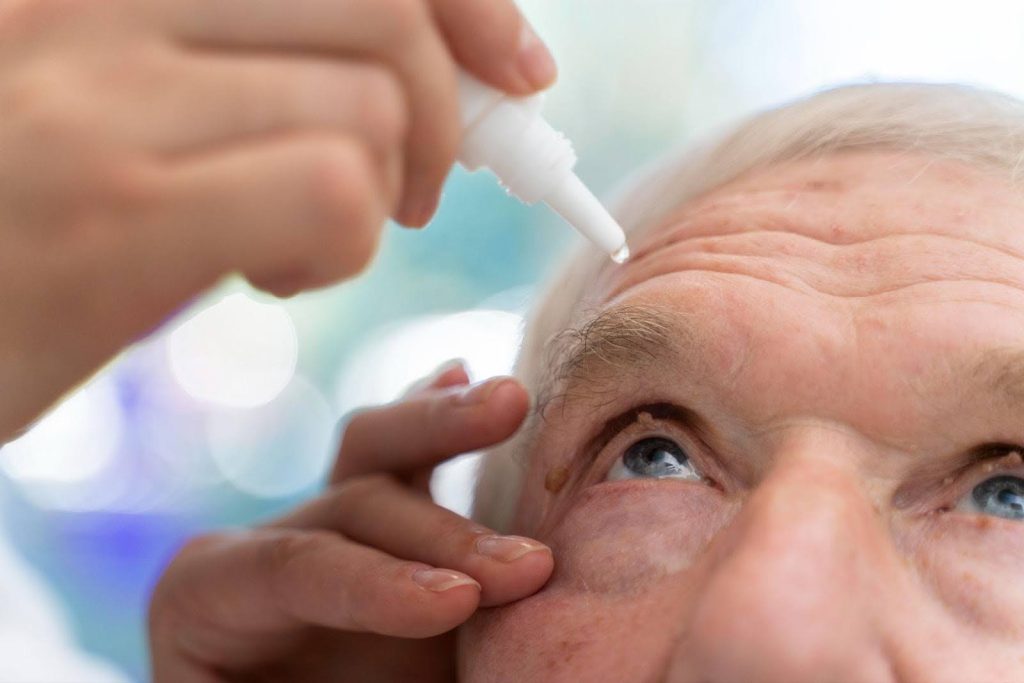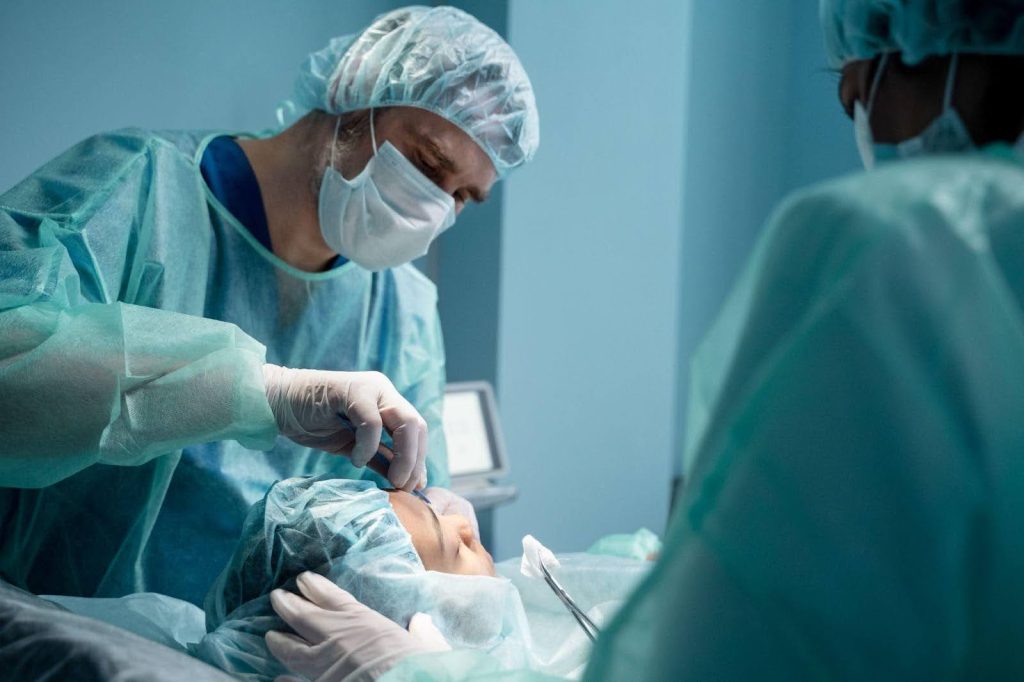While having cataracts can be a challenge in and of itself, having one on both eyes can bring more difficulty. In most cases, when people have cataracts in both eyes, one eye may have it worse than the other because each cataract will develop differently.
The rate of the cataract’s progression also gradually increases in density over the years, but in some, it may become severe in a shorter amount of time. When this happens, performing day-to-day tasks can be more difficult, and cataract surgery may be required.
Though it is possible for your ophthalmologist to operate on both eyes simultaneously, it may be wiser to schedule each eye on different days. This cautious approach stems from the intricate nature of the procedure and the importance of ensuring optimal outcomes.
When You Have Cataracts in Both Eyes, Do Both Have to Be Operated?
The decision to operate on both eyes when cataracts are present depends on individual needs and preferences. In cases where both eyes are affected to a degree that significantly disrupts daily life, scheduling cataract surgeries for each eye at different times might be the optimal approach. This flexible strategy allows individuals to adapt their treatment plan according to their unique circumstances, ensuring a personalised and effective solution to restore vision.
What is the Minimum Time Between Cataract Surgeries on Both Eyes?
There is no specific time necessary between cataract surgery on both eyes, although it is recommended that the first eye should be out of any danger (usually a few days).
The interval between cataract surgeries will also depend on the following:
- Your visual needs and preferences
- Your visual acuity, sharpness, and function of your second eye
- Medical and refractive stability of your first eye
- Degree of anisometropia and the need to restore your binocular vision
What Is the Minimum Recovery Time for Cataract Surgery?
After undergoing cataract surgery, the body requires a crucial period for healing, adjustment, and the restoration of optimal functionality.
Generally, individuals can anticipate a recovery period spanning two to four weeks following their cataract operation. It’s essential to note that the exact duration may vary from person to person. Factors such as overall health, the specific details of the surgery, and individual healing capacities, for example, can all play roles in determining the pace of recovery.
During this post-operative phase, patients are advised to follow their eye specialist’s guidance diligently, engage in recommended aftercare practices, and be attuned to their body’s signals, ensuring a smoother recuperation and a successful transition to clearer vision.
Why Is Cataract Surgery for Both Eyes Simultaneously Not Standard Practice?
The caution surrounding simultaneous cataract surgery on both eyes stems from a meticulous consideration of potential risks, primarily the rare but serious threat of endophthalmitis, a severe ocular infection. While this occurrence is uncommon, ophthalmologists exercise prudence by generally avoiding the simultaneous procedure to minimise any associated risks. Instead, they recommend a staged approach, allowing a recovery interval between operations on the first and second eye.
This staged approach serves as a preventive measure, reducing the likelihood of complications and ensuring optimal safety and outcomes for the patient. The time between cataract surgeries enables the ophthalmologist to monitor the recovery of the first eye, addressing any unexpected developments before proceeding with the second eye. By taking this cautious stance, ophthalmologists prioritise patient well-being and strive to deliver the most effective and secure cataract surgery experience.
It’s crucial to note that there are exceptions to this standard practice, particularly in cases involving mentally incapacitated patients. In these situations where general anaesthesia is required, and significant cataracts affect both eyes, operating on both eyes at the same time may be deemed necessary. This decision is carefully evaluated based on the patient’s condition and the specific requirements of the case.
As such, it is important to attain a more in-depth insight into the intricacies of cataract surgery to have any queries addressed and to ensure a well-informed approach to eye care and surgical decisions.

Care for Both Eyes After Cataract Surgery
Recovery extends beyond the operating room, making aftercare a critical component of the cataract recovery journey.
Here is all you need to know about post-operative care after your cataract surgery to help you with healing:
1. Eye Drops Routine
Your ophthalmologist will likely prescribe eye drops to prevent infection and manage inflammation. With this, it’s essential that you stick to your schedule of using the eye drops religiously. That way, you can boost your recovery.
2. Protect Your Eyes While Bathing
Avoid exposing your eyes to water while showering for the first week following your surgery. In the event that water comes into contact with your eye, put in the proposed dose of post-op eye drops immediately after getting out of the shower.
3. Protective Eyewear
During the first week after your cataract operation, you will be prescribed by your ophthalmologist to wear an eye shield every night while you are sleeping. This helps protect your eye from bacterial infections during the recovery process.
4. Rest and Recovery
Giving your eyes the necessary downtime is vital for a successful recovery. Strenuous activities, particularly those involving bending over or heavy lifting, should be avoided during the post-operative period.
5. Watch for Warning Signs
If you encounter increasing pain, notice heightened redness, or observe changes in your vision, reach out to your eye specialist promptly. Early intervention in response to these warning signs can mitigate potential complications and contribute to improving your vision.
6. Follow-Up Appointments
Attending your post-operation appointments is imperative, as they allow your eye specialist to monitor your progress closely. These follow-up sessions provide an opportunity for the ophthalmologist to make the necessary adjustments to your treatment plan as needed to help you get back on your feet.
If you’re considering getting cataract surgery for both your eyes, you should schedule an appointment with an eye specialist clinic in Singapore with expertise in cataracts and cataract surgery. That way, you can get the treatment you need to overcome the challenges that come with the impairments and continue to live an optimal quality of life in the long run.

Dr. Christopher Khng, specializes in Complex Cataract and Anterior Segment Reconstruction Surgery, in particular, Iris Reconstruction and surgery for Aniridia. His other areas of expertise include Complex Lens surgery, New Lens and Phacoemulsification technologies, Refractive surgery, Phakic IOLs (the Implantable Collamer Lens, ICL), and small-incision, topical anesthesia phacoemulsification cataract surgery. Dr. Khng is a member of the Singapore Medical Association (SMA), a Fellow of the American Academy of Ophthalmology, the American Society of Cataract and Refractive Surgery (ASCRS), and the European Society of Cataract and Refractive Surgery (ECSRS). He is registered with the Singapore Medical Council (SMC) in Singapore and with the General Medical Council (GMC) for practice in the United Kingdom.

